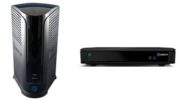This may be the first time this has happened. Although many outsiders (myself included) have called for binding arbitration between content providers and pay-TV companies, this may be the first time that a pay-TV company is actually asking an outside party to intervene in a carriage contract in a way that takes the decision-making process out of both parties’ hands.
In a press release issued today, DISH says it is willing to agree to binding arbitration with Tribune, whose stations were blacked out in 33 markets this week. Typically, contract disputes that take place in the summer tend to go on for a while because both sides feel like they can take their time, as no new programs lay on the horizon. Similar disputes starting in June have gone well into September, magically resolving themselves just days before new programs premiere.
DISH is calling this “baseball-style” arbitration so as to help regular folks understand it, but it’s a very common thing in many industries. An industry person is appointed and approved by both sides and that person listens to the arguments from both. He or she then comes up with a plan, most likely something in the middle of both positions, and both sides have to agree to it with little or no negotiation. In this case, the arbitrator would be deciding a fair value for the local and national stations owned by Tribune, and whatever that value is, DISH would pay it.
Pay-TV companies have generally shied away from this sort of thing in the past, probably because they feel that it would lead to higher prices compared to traditional hard bargaining techniques. On the other hand, humble bloggers like me as well as industry heavy-hitters have said multiple times that it’s a fair way to deal with greedy content providers. Local channels are less and less valuable over time, with nationwide streaming apps for networks and increased reliance on the internet for local news. On the other hand, local broadcasters seem to get more and more greedy every year. Binding arbitration might raise prices to start with, but I believe it would eventually mean lower prices and it should mean shorter channel blackouts — if blackouts even become necessary.
The other piece of this puzzle that always bears repeating is that FCC rules allow a company like Tribune to negotiate in an all-or-nothing strategy. This means that companies like DISH can be forced to pay high prices for channels in small markets that may be less meaningful. It’s ironic, yes, that DISH doesn’t want to pay for programming bundles just like you don’t want to pay for them, but it makes you realize that the real thing holding up a la carte programming isn’t DISH, it’s companies like Tribune.
Supposedly, one big problem here is that DISH is being asked to pay for WGN America, once considered one of the premier nationwide “superstations” but now just a repository for reruns of old TV shows that can be easily found elsewhere. Tribune is saying that DISH must pay for and carry WGN America but DISH doesn’t want to. Frankly I don’t blame them. Personally I can’t tell you the last time I watched the channel myself.
The odds are that this just a marketing tactic from DISH, a company known for them. They’re casting themselves as the good guy and forcing Tribune to turn down binding arbitration, something they probably will do since their programming portfolio is fairly weak. That said, wouldn’t it be nice if this worked for once? It could become a prototype for all channel disputes and possibly end the practice of channel blackouts which has become such a pain for people affected by them.
DISH claims its program to give out free over-the-air antennas has been successful so far, but we’ve yet to see details of what antenna they’re giving away and how good it is. If you’re affected by channel blackouts today or even if you feel like you could potentially be affected by them in the future, it seems to me the better thing to do is contact Solid Signal, the nationwide leader in over-the-air antennas, for a recommendation on an antenna that will actually work in your area.





